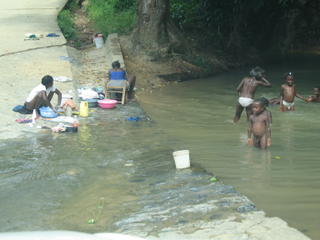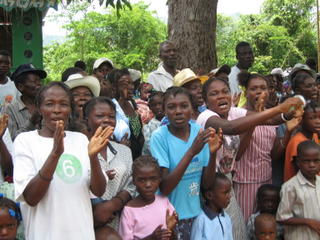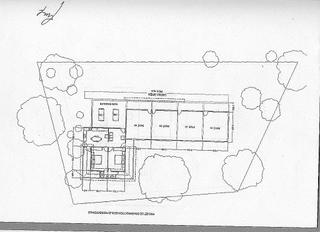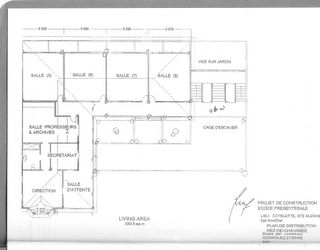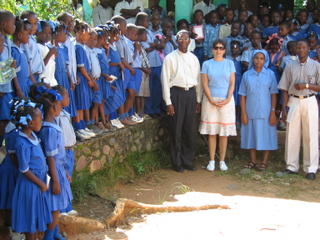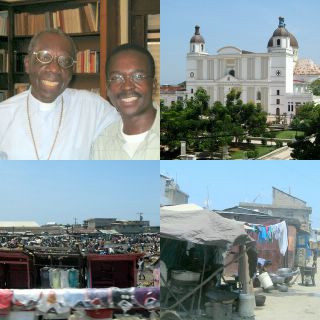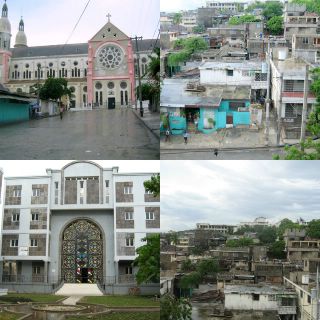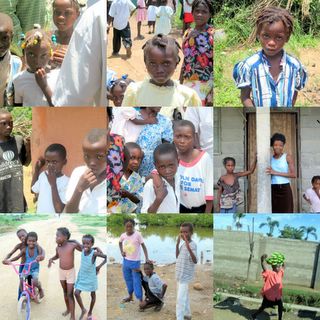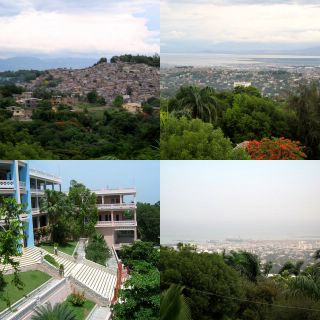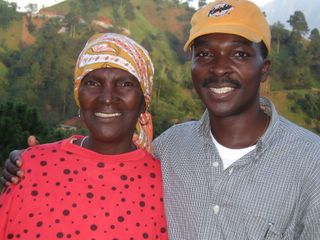Violence in Port-au-Prince escalates: the father of a sponsored student is shot.

Fr. Jean at Radio Soleil.
These events happened during the time I was in Port-au-Prince (June 16-22, 2005;
- The father of a sponsored child, a driver for the Archdiocese I had met just the day before, was shot through the windshield of the church vehicle and the bullet lodged behind his eye. He remains alive, but the Haitian surgeons are unable to reach the bullet and the Bishop is attempting to move him to a medical facility in Cuba.
- The wife of Radio Soleil's programmer was kidnapped and tortured. After paying a ransom she was released to her husband but they plan on leaving the country.
- A Canadian businessman's wife was kidnapped. She was released after an undisclosed sum of money changed hands.
- The daughter of a prominent Haitian's businessman was kidnapped, tortured and raped. During ransom negotiations he spoke to her, only to hear her ask him not to pay the ransom money because she was already dead inside.
- 2 other kidnappings occurred but details are not known.
- An attempted kidnapping occurred as a businessman was tricked into slowing down his car by children begging in the street. A bandit immediately jumped in the car and put a gun to his head. The businessman fought back, got the gun away from the bandit, shot the bandit and escaped.
- Another driver for the Archdiocese was chased by bandits, but was smart enough to head straight to the police station and escaped.
- Gunfire in the streets required the UN to safeguard Fr. Jean's procession saying a Novena to Our Lady of Perpetual Help (patron saint of Haiti) through the dangerous area around Fr. Jean's residence.
- Later that day, Fr. Jean received phone calls telling him not to come back home. He told me that he could hear gun shots through the phone lines during the call.
- The next morning more gunshots were heard, two fires were seen close to the Cathedral and more gunshots were heard around 5 pm in the afternoon.
- A six year old boy was found with one eye destroyed by torture at the hands of bandits.
- The sides of the Archdiocesan compound where Fr. Jean lives were peppered with bullet holes from the guns of bandits.
- Fr. Jean was late picking me up to go to the airport for my departure from Haiti because gunfire kept him from leaving his residence.
- During that airport trip, Fr. Jean received call after call from Archdiocesan employees begging him to do something to keep them safe at work.
Fr. Jean, the Bishop, an Auxillary Bishop, and six fellow priests live in this compound. There are many Archdiocesan employees working in offices at the compound that are in constant danger just coming and going from work. There are many days when it is not safe to leave or return to work because of the gunfire around the area. The stress caused by this violence is taking a toll on everyone.
The UN forces from Brazil can be seen everywhere throughout the country. Yet if you talk to any Haitian or person living in Haiti, they all tell you the same thing, "The UN forces are having a vacation in Haiti!" A well know Haitian humorist had a radio program on this past Monday, imitating the Secretary General of the UN, thanking the people of Haiti for giving the UN workers a vacation! While it is remarkable that the Haitians could laugh about the horror and reality of their situation, they are wonderful people that deserve to live in peace and safety.
There are mixed feelings about what is the best way to establish order in Haiti. Some feel the UN needs to leave and the US need to send in troops that will enforce the law. Others feel that the UN forces from Brazil are powerless to do anything unless their orders can be changed to stop the bloodshed and violence. Everyone is in agreement about the fact that Haiti is a mess and only God can help this country.
I urge you to pray for this country and the Haitian people every day! Pray for Fr. Jean's safety and all those working for the Archdiocese and in harm's way. Pray for the people trying to make a difference. Pray for a miracle to change the horrible chaos and poverty of this country. Pray for our leaders and the leaders of Haiti to have the wisdom to help Haiti. Pray, Pray, Pray! God can do miracles.

